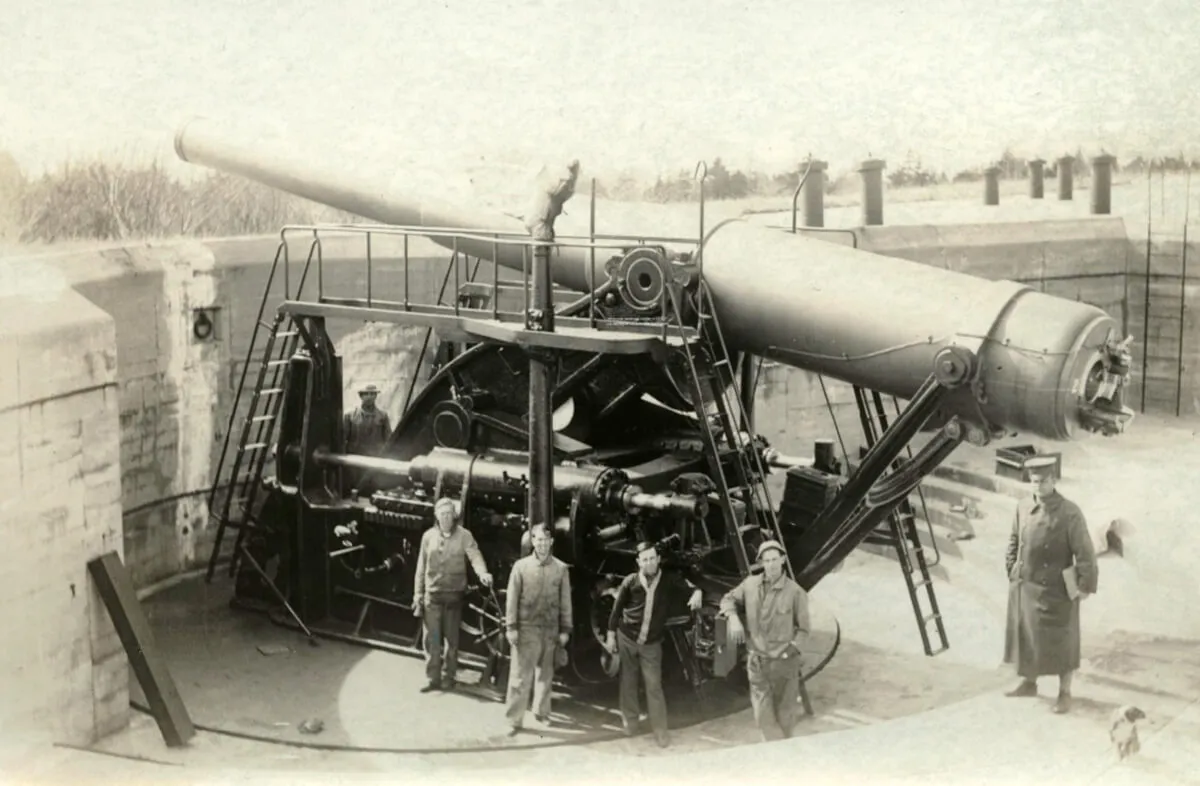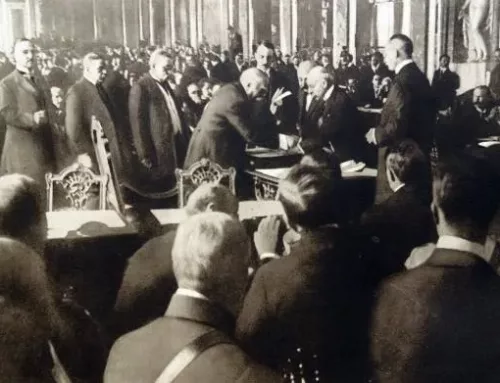The 1st American serviceman killed in WWI died in Maine. Who killed him?
Published: 1 September 2022

ww1-first-soldier-maine-die-poor-gun-1-1
Soldiers pose in front of a large gun circa 1917 at Fort Williams in Cape Elizabeth. Pvt. John Poor died in a shootout at the fort that year while guarding two 12-inch guns. Credit: Courtesy of Collections of Maine Historical Society, courtesy of MaineMemory.net
The 1st American serviceman killed in World War I died in Maine, but who killed him is a mystery
By Troy R. Bennett
via The Bangor Daily News newspaper (ME) web site
CAPE ELIZABETH, Maine — On Saturday morning, March 24, 1917, a telegram messenger shouted the awful news from the front gate, across the Poor family’s Illinois front yard and into their windows.
Their son was dead.
Pvt. John Poor was killed the previous day in a midnight shootout at Fort Williams, far away, on the coast of Maine.
German spies were thought to be responsible.
Though the country didn’t officially enter WWI for another 10 days, Poor’s death while guarding the seaside battery in Cape Elizabeth, likely made him the first serviceman to die in the line of duty while serving in the United States’ armed forces during the “War to End All Wars.”
A tiny, one paragraph, page four item in the March 28 edition of the Ellsworth American newspaper predicted it.
“Future historians may record that the first soldier killed in the performance of his duty in the war between the United States and Germany was John Poor,” the unattributed piece said. “The incident brings home to Maine the fact that the war is serious business and is getting near home.”
Congress declared war on Germany four days after the newspaper’s prophetic statement.
By then, WWI had already ravaged Europe for three years. The United States entered the fray for a variety of reasons, including Germany’s unrestricted submarine warfare in the Atlantic Ocean and its alliance overtures to Mexico.
Though German submarines never sank a ship directly off the Maine coast, tensions were high. A U.S. Navy recruitment officer told one newspaper that an “attack on the Maine coast was by no means unlikely.” Islands in Casco Bay bristled with manned gun emplacements. At the mouth of Portland Harbor, Fort Williams had two, large 12-inch guns capable of firing out to sea.
Poor was guarding those guns when he died.
Read the entire article on The Bangor Daily News web site here:
External Web Site Notice: This page contains information directly presented from an external source. The terms and conditions of this page may not be the same as those of this website. Click here to read the full disclaimer notice for external web sites. Thank you.



